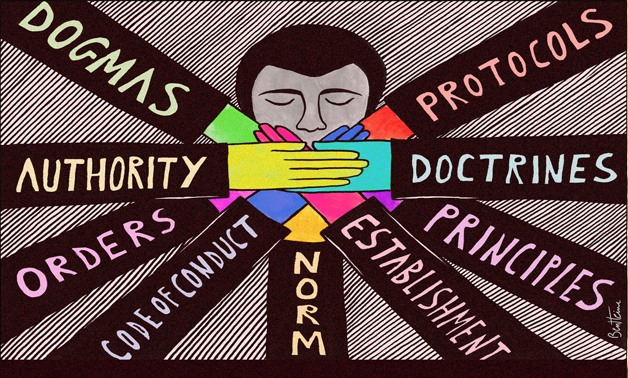
censorship - Flicker
Cairo - 15 July 2017: Following the 2011 revolutions which sparked intense protests and demands for the end of Mubarak's regime, a new wave of Egyptian artists have emerged from the woodworks, bringing with them powerful new ideas and insights for their country's future.
However, in recent years Egyptian art has come under increasing censorship, with multiple films, TV shows and musical shows silenced or gutted. A recent example is of the independent rock band Cairokee, which was set to release its latest album No’taa Beda /‘A Drop of White’, until the General Authority for Censorship of Works of Art issued an order that the album not be released.
Censorship is defined as "the suppression or prohibition of any parts of books, films, news, etc. that are considered obscene, politically unacceptable, or a threat to security." Thus, whatever the government decides is unacceptable will be taken down, regardless of whether or not the offending material even serves to threaten the stability of the public or government.
An older example is the documentary film 18 Days, starring Ahmed Helmy. Centered on the 2011 Egyptian revolution, the movie premiered in the 2011 Cannes Film festival and has since been banned from airing in Egypt since. Despite this, the movie leaked online on July 4th, finally allowing Egyptians accessed to a documentary made by and about them.
Rather than discourage, censorship only increases an artist's desire to get their work out to the world, allowing them to prove their strength and willingness to speak their truths, no matter what they face.

Comments
Leave a Comment